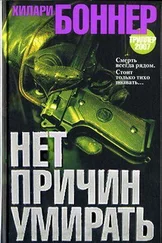He ended the call. I stepped into the room and spoke as if I knew nothing of his call, which had fairly obviously been to his employer.
‘Who was that on the phone?’
‘The Amaco personnel people,’ he said. Surely speaking the truth for once, I thought nastily, even though it was a Saturday. But then, as PC Cox had remarked on the night of Robbie’s death, this was the oil business. It didn’t shut up shop for the weekend.
‘They wanted to know when I could go back to work. I told them not for at least another two or three weeks—’
‘I think you should go back straight away,’ I said, interrupting. ‘There’s no point in moping around here. That won’t help either of us. Just go. It’ll be for the best.’
He looked surprised and hurt.
‘Not yet, surely,’ he said. ‘I don’t want to leave you on your own. Not yet.’
‘I’ll be all right,’ I said. ‘Call them back. Tell them you’ve changed your mind.’
He shook his head. ‘No,’ he began. ‘It wouldn’t be right—’
I interrupted him again. This time I screamed at him.
‘Don’t you understand, you lying bastard. I don’t want you here. I want you to go. I want you to go anywhere, anywhere at all, and just leave me alone.’
I hadn’t meant to fly out of control like that, but I couldn’t stop myself.
He recoiled from me as if I had physically attacked him.
Which I was just a hair’s breadth from doing.
Robert left for the North Sea less than forty-eight hours later, early on Monday morning, eleven days after our son had died. He hadn’t argued at all after my near violent outburst. Instead he’d meekly called the Amaco people back and made the necessary arrangements to return to work as soon as possible.
He told me he’d managed to get a flight to Aberdeen from Exeter — sometimes it had to be Bristol from where the service was more frequent — and I drove him to the airport just as I always had. We’d only ever run one car as Robert was away so much and almost never wanted to go anywhere alone when he was at home.
We had little to say to each other on the hour or so drive, and he looked sad and beaten as he climbed out of the car and made his way to the terminal building. It occurred to me that I was suddenly the strong one. The decisive one. And that I’d never realized how weak the man I’d married could be, whatever his bloody name was.
As soon as I got home I called Gladys Ponsonby Smythe. I thanked her for all her help with the funeral arrangements and told her I’d never have got through it without her. Which was more or less the truth.
‘Shall I pop over?’ she offered at once. ‘I could pick up one of Mrs Simmons’s home-made cakes from the shop.’
I turned down the offer, a little too quickly probably, even though I knew only too well how delicious Mrs Simmons’s cakes were.
‘Robert and I need some time alone, just to be quiet together,’ I fibbed by way of explanation. I was fairly sure that if I confessed that I was alone in the house a herd of Dartmoor ponies wouldn’t have stopped her dropping everything and rushing to my rescue.
Gladys said she quite understood, and I was able to move on to the real reason I had called her.
‘About Robert,’ I began as casually as I could. ‘You know when you said you thought he used to sing in the choir at your other church? I wondered how long ago it was, and if that would have been when he was with his first wife?’
Was there an almost imperceptible pause? I wasn’t sure. But Gladys sounded clear enough when she did answer.
‘Oh, Marion, luv, I feel such a fool,’ she said. ‘I don’t suppose it was your Robert at all, chuck. After all, it was years and years ago. I couldn’t tell you exactly how many, but Gerry and I have been in Blackstone over twelve years. The man I remembered must have looked then like Robert does now. Silly of me.’
‘So you don’t remember his wife?’ I persisted.
‘To be perfectly honest, I don’t think I remember anything, luvvie,’ said Gladys, with a small snort of laughter. ‘I got it all wrong, didn’t I, and I have no idea what I thought I was doing sticking my oar in like that, and at your poor lad’s funeral too. Typical, Gerry would say. I just hope you can forgive me, flower, that’s all...’
She was prattling now, in true Gladys fashion, and absolutely determined to treat me to her full range of Northern endearments, it seemed. I knew I wasn’t going to get any more sense from her, even assuming there was any to get. I let her voice wash over me until I could reasonably interject and end the conversation.
Afterwards I wondered if perhaps I had been wrong to attack Robert the way I had. If Gladys had made a genuine silly mistake, then I had not caught Robert out in another lie after all. But that was the terrible dilemma the two of us now shared. With even the slightest cause, would I ever again be able to stop myself becoming suspicious of him?
I also tried to call Sue Shaw. She didn’t pick up. And I didn’t somehow expect her to. Nor really did I expect her to respond to the message I left asking her to call me back for a chat, only a chat.
Then for the rest of that day, and most of several that followed, I just moped around the house, poking about among Robbie’s things, periodically bursting into floods of tears. I ate and drank little, delving into the freezer only if I really needed food and not interested at all in the form it took. Any crockery and cutlery I did use was piled in the sink. I couldn’t even be bothered to load the dishwasher. For the first time since we had moved in, Highrise looked grubby and uncared for, and I didn’t give a damn.
Paracetamol were no longer helping at all with my sleeplessness. I visited my doctor to request some sleeping pills which he duly provided, prescribing zolpidem, apparently the UK’s most popular sleeping aid, although I had never heard of it before. While I was there he insisted that I get my feet redressed. I’d neglected them totally since scalding them on the day of Robbie’s death, but my wounds had stopped leaking and seemed to be healing OK, in spite of my lack of attention.
I answered the phone as infrequently and briefly as possible and then only to ensure that neither Gladys nor my dad nor Bella nor any other of my relatively small band of acquaintances descended upon me. I ignored Robert’s calls and emails completely. I thought he deserved to suffer as I was suffering. The only time I left Highrise was when Florrie more or less forced me to take her for a walk, rubbing herself against my legs and whining pitifully.
Even with the aid of the zolpidem, I tossed and turned my way restlessly through most of each dark night, and endured each long day with lonely and harrowed anguish.
Then, six days after Robert had returned to work, on a particularly bright and beautiful Sunday morning, I decided I could take no more of it. I dug out my heavy-duty boots, put on extra thick socks to protect my feet, loaded Florrie into the back of the car, and drove up onto the moors past Okehampton Camp, the big army training centre where hundreds of cadets, including Royal Marines Commandos, are put through their paces every year. Fortunately no military manoeuvres were taking place and the track into the heart of Dartmoor, which cuts right through the camp’s firing range, was open.
After a mile or so I parked. Only then did I wonder why I had bothered with the protective socks and why I had brought Florrie with me. Habit I supposed. But in view of what I was planning, both were irrelevancies.
I set off on foot, Florrie running circles around me, towards Yes Tor, the second highest point on the moors, its peak more than two thousand feet above sea level. The air was cold and the sky impossibly clear. I could see for miles. Beyond that. Purple hills seemed to stretch to infinity. But not even Dartmoor at its best could lift my dismal mood nor alter my intention.
Читать дальше












